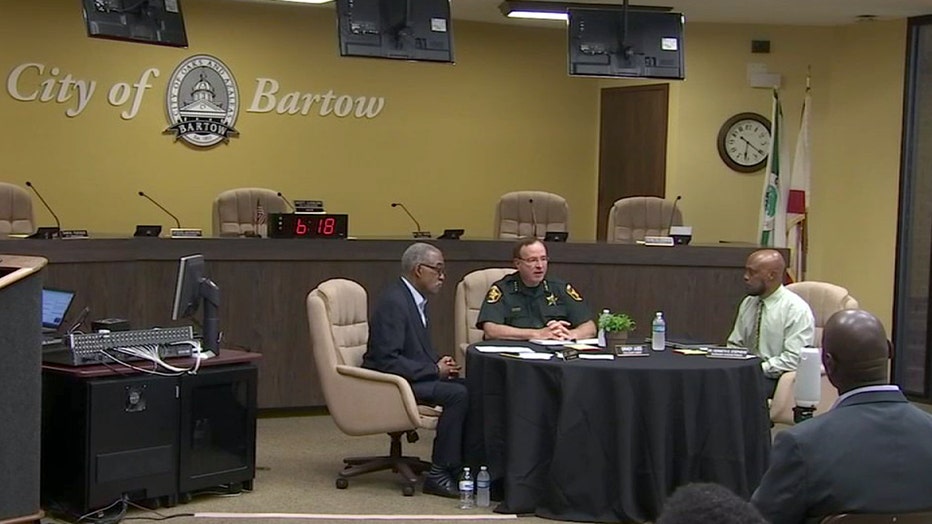Criminal justice reform a hot topic in Tampa Bay, no matter the side
BARTOW, Fla. - Law enforcement agencies, residents, prosecutors, and advocates across the Tampa Bay area came together Tuesday night to discuss criminal justice reform.
From Pinellas to Polk counties, interested parties discussed civil citation programs, Florida's anti-riot law, and communication between law enforcement and residents.
Gi Gi Van Doren took part in a roundtable sponsored by DART Florida Criminal Justice Collaborative.
Her son rolled through a stop sign but didn't realize he had a suspended license. Soon, he was in handcuffs while his kindergarten-aged daughter watched.
"It was pretty traumatic for the little one," she said.
DART teams with state attorneys around Florida to advocate for statewide criminal justice reform.
During Tuesday's roundtable, the St. Petersburg Police Chief and the Sarasota sheriff were urged to expand civil citation programs, which Van Doren says would have helped her son.

Hillsborough County officials said they have cut juvenile arrests by almost 60% since 2016, from 5,800 to 2,400 a year.
"They reduce recidivism. They steer kids away from the downward spiral of the system and they save money for taxpayers," said Hillsborough State Attorney Andrew Warren.
There was also an in-person meeting at Bartow City Hall, where Polk County Sheriff Grady Judd took questions on Florida's new anti-riot and police reform laws.
The sheriff, who is influential statewide, is wary of lessening penalties, pointing out crime in Florida is at a 50-year low. He also argued paperwork mistakes already leave discretion to officers.
"Here is a thought for you, how about not violating the law?" said Judd. "Then you don't have to worry about the criminal justice system or criminal justice reform."
He took questions from residents who were concerned that those who protest peacefully could get ensnared by the new tougher laws. He argued it's written to allow for vocal but peaceful dissent.
Mary Poindexter of Bartow argued a big part of law enforcement – especially when it comes to African American communities – is about communication.
"There is a perceived notion [among officers]," she said. "Instead of going out there with an open mind, and thinking about I am going into a situation, let's figure out what we need to do."
Though there isn't broad agreement, at least for one night, there was talking.

